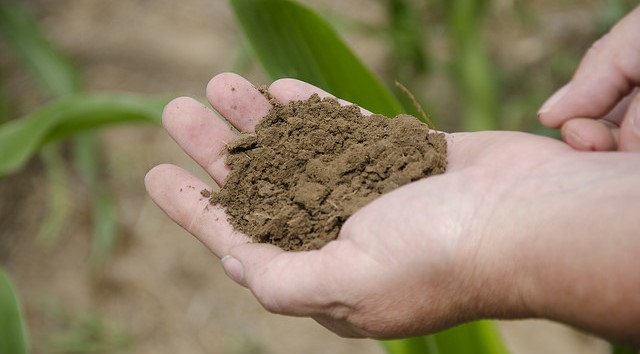A soil carbon measurement experiment at the Southern Dairy Hub is set to shed light on carbon sequestration on New Zealand dairy farms.
AgResearch Senior Scientist Mike Dodd, who is leading the research, explains:
“We can and have over the years found out about carbon concentration levels in farmed soils, but we don’t have great data on amounts of carbon mass. The difference is significant.
“A farm could have high concentrations of carbon if, for example, the soils have been compacted. This wouldn’t necessarily translate to a farm having high levels of carbon stored in its soils though, so this research is important and timely because farmers are hoping to have carbon storage recognised in future policy setting.”
Mike says Southern Dairy Hub is the ideal place to conduct the research.
The 350 ha research facility, located near Invercargill, is jointly owned by AgResearch, DairyNZ and Southern Dairy Development Trust.
The farm is divided into four units that are operated using different winter management techniques.
“So the research will provide us with data on how much carbon is stored across a variety of soils and farming practices from winter cropped to permanent pasture,” Mike says.
“We want to tease out those farm system effects.”
How will it be done?
AgResearch scientists based at Ruakura (Hamilton) developed a hydraulic soil coring machine several years ago that sits on the side of a 4×4.
It has been driven across 44 paddocks at the Hub taking samples down to 600 millimetres.
“They have been analysed for total carbon and nitrogen and at the AgResearch Ruakura lab that uses relatively new hot water testing techniques that extract carbon and nitrogen,” says Mike.
“That will give us the total carbon, and what you might call the, ‘working carbon’; the carbon that is moving in and out of the system on a short term basis compared to the mass that’s the more permanent sink”.
Why is the team doing this?
Mike, who sits on the SDH research advisory committee, explains:
“Carbon research, traditionally has focused on soil organic matter, which we know contributes to soil health.
“We know more organic matter is better for soils because it contains more ability to supply nutrients, and reduces the effects of compaction.
“There’s been a ton of research done historically on this, but of course with the new interest in mitigating climate change, soil carbon pools are a potential way of doing this.
“If you can increase what we call the sequestration of carbon from the atmosphere through the plant and into soil, then you’re essentially reversing those processes associated with global climate change.
“There’s a lot of interest in how our pastoral management in particular can enhance that process and the tools we need to build carbon stocks.
“There’s also quite a bit of scepticism around it.
“Some of the arguments sit around the fact that if you look globally permanent pastures tend to have the highest carbon stocks of any system.
Then below that you’ve got forest soils and cropped soils.
“So there’s some legitimate questions around if we are high already, can we get any higher? And, at the same time, you can turn that around and say, ‘well, what is the risk if we lose carbon from permanent pastures’?
“So that’s an important thing to know in a New Zealand context. We have a lot of volcanic derived soils with particular properties and minerals particularly good at holding on to soil organic matter.
“If you look globally, our soils have potential to hold more carbon compared with Australia or the US.”
The research is funded by Ministry of Business, Innovation and Employment’s Strategic Science Investment Fund.
The results will be shared via the Southern Dairy Hub website: https://www.southerndairyhub.co.nz/
Source: AgResearch












